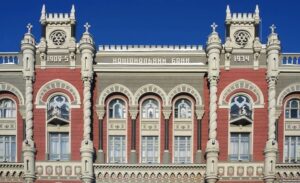
SkyUp Airlines, Azur Air Ukraine, Windrose and Ukraine International Airlines (UIA) received more than UAH 60.7 million in compensation from the state for returning citizens to their homeland in the spring of 2020, the Ministry of Infrastructure of Ukraine reported on your Facebook page on Friday.
“Ukrainian air carriers were reimbursed more than UAH 60.7 million for the implementation of irregular international flights in the spring of 2020. The peculiarity of these flights was that they departed from Ukraine without passengers – that is, without commercial loading. The main task then was to return Ukrainian citizens home to conditions when countries around the world introduced a tough lockdown. I am very grateful to the Ukrainian airlines for the fact that they were able to respond to global challenges as quickly as possible,” Minister of Infrastructure Oleksandr Kubrakov said.
According to him, in such critical situations, the state does not have the necessary flexibility to make quick decisions to respond to such threats.
“This is one of the clearest examples of why Ukraine needs the state air carrier Ukraine National Airlines in the modern world,” he added.

The National Bank of Ukraine (NBU) will raise the risk weight for unsecured consumer loans from 125% to 150% from January 1, 2022, the central bank’s press service reported on Friday.
The changes will help banks create an adequate capital cushion to cover unexpected losses from the deterioration in the quality of their unsecured consumer loan portfolio.
In addition, the resolution is intended to increase the lenders’ resilience to potential crisis phenomena, in particular, to stimulate proper consideration of both the advantages and risks of working in this segment.
The press service said that now, for every UAH 10 of the loan, the bank shall keep UAH 1.50 of regulatory capital.
In addition, from the beginning of the year, the NBU will introduce minimum requirements for capital coverage of operational risk in the amount of 50% of the estimated amount, with an increase to 100% from January 1, 2023.
The NBU also increased the risk weights on government bonds in foreign currency to 50% with a subsequent increase to 100% from July 1, 2022. To gradually bring domestic requirements in line with international standards, the risk weight is increased in stages and only for those securities that banks buy from April 1, 2021.
Also, the regulator will increase from the current 25% to 50% the share of the cost of noncore assets deducted from fixed capital.
This requirement to deduct the value of noncore assets from the fixed capital of banks is intended to induce banks to more actively release balance sheets from illiquid assets, which for the most part do not generate income, but are often reflected at an inflated value. The total impact of the planned changes on the banks’ fixed capital adequacy will amount to 2.5 percentage points, the NBU said in the report.

JSC Ukrgazvydobuvannia has increased production at the Kehychivske field (Kharkiv region) thanks to the drilling of directional production wells that allow reaching promising gas deposits under difficult surface conditions, the press service of the company has said.
According to the press service, the company has drilled and put into operation three wells in this field in 2021, in particular, the latter, thanks to modern technologies and rapid penetration, was drilled and connected to the surface infrastructure system ahead of schedule. Now, it operates with a flow rate of about 80,000 cubic meters per day.
“Our specialists are planning further development of the field, because despite its depletion, it is promising – residual reserves reach 5.6 billion cubic meters of gas,” the company said.
At present, at the Kehychivske field, over the entire period of operation, 22.7 billion cubic meters of gas have been produced, 41 wells are in operation.

McDonald’s restaurants in the Respublika Park shopping center and the New Way shopping center opened on December 30, the company’s press service reported.
The restaurant in the Respublika Park shopping and entertainment center (1 Kiltseva Street) is designed for 154 guests, plus another 120 seats on the terrace. For the convenience of couriers, a separate window is provided for issuing orders. There are also two MacDrive lines in Respublika Park.
The McDonald’s restaurant in the New Way shopping center (1 Architect Verbytsky Street) has a spacious hall for 134 guests and a space for 92 guests on the terrace. MacDrive has two windows for faster service, and the two-storey restaurant itself has an elevator for table service and ten self-service terminals.
The first McDonald’s restaurant in Ukraine was opened in Kyiv on May 24, 1997. Currently, the McDonald’s chain in Ukraine has 109 restaurants in 24 cities.
The network is being developed by McDonald’s Ukraine Ltd. According to the data of the unified state register of legal entities and individual entrepreneurs, MCD Europe Limited (100%, London, the UK) is a company participant. The charter capital of McDonald’s Ukraine Ltd. for December 2021 is UAH 901.801 million.
The Club of Experts project systematically analyzes the impact of food products on human health, check out the channel for more details

Next year KSG Agro will expand the crop rotation of winter and spring peas on a total area of 1,000-1,200 hectares, some 500-600 hectares will be allocated for each type of crop, the company’s press service said on Thursday.
“In 2022, we will expand the crop rotation with peas, which at one time were abandoned due to low prices and demand. Now this crop is interesting as an excellent predecessor of winter crops, primarily wheat, and as a protein product for our pig breeding,” the group of companies said, citing its production director Dmytro Yemelchenko.
According to the agricultural holding, a seedling of winter pea of the Serbian Moroz grade has already been planted on an area of 53 hectares, and in March 2022 a seedling of spring peas will be sown. After receiving seeds for them, KSG Agro intends to sow marketable pea crops.
The company clarified that the expansion of the pea crop rotation is not so much commercial as technical in nature.
“Let’s say that we get a low profitability of 20-30%, but at the same time we understand that we will have an effective predecessor for winter crops, on which we will receive an increase,” Yemelchenko said in a report.
The vertically integrated holding KSG Agro is engaged in pig breeding, as well as in production, storage, processing and sale of grain and oilseeds. Its land bank is about 21,000 hectares in Dnipropetrovsk and Kherson regions.
According to the agricultural holding itself, it is one of the top five pork producers in Ukraine.

Thermal power producers have reduced their debt to NJSC Naftogaz Ukrainy by UAH 22.03 billion through mutual settlements in accordance with the law on measures aimed at settling the debt of heat supply and heat generating organizations and enterprises of centralized water supply and drainage.
This was reported in a company’s press release on Thursday.
“It was possible to carry out mutual settlements in an extremely short time thanks to effective cooperation between Naftogaz, the Ministry of Communities and Territories Development of Ukraine, the Ministry of Finance of Ukraine, the State Treasury Service, thermal producers and relevant state administrations,” the document says.
According to the company, “debt settlement and timely payments for consumed natural gas are critically important to ensure a stable passage of the heating season.”